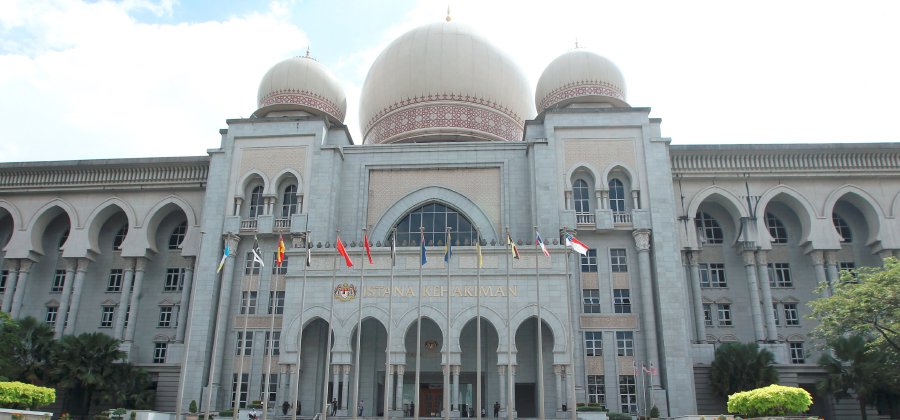PUTRAJAYA: The National Registration Department (NRD) director general had taken a correct and reasonable action in using 'Abdullah' to register the name of an illegitimate child based on Islamic precepts, the Federal Court was told today.
Senior federal counsel Suzana Atan said this in an argument over the appeal brought by a couple and their child who filed a judicial review to compel the NRD director-general to replace the child’s surname “Abdullah” with the name of the child’s biological father in the birth certificate.
The matter was heard before the panel of five judges headed by Chief Justice Tan Sri Md Raus Sharif.
She pointed out that the NRD's decision was made based on the law that governed the legitimacy of a Muslim child as provided for under the respective States' Islamic Family Law Enactments and ‘fatwa’ or religious edict issued by the National Fatwa Committee.
"The NRD did not act beyond its jurisdiction for referring to the 'fatwa' when registering the child's name. The use of the biological father's name is allowed only if the child is conceived through lawful marriage or born within certain qamariah months,
"It has been decided in a muzakarah that illegitimate Muslim children were not permitted to take their father's name," she said.
Suzana, who was representing the NRD, its director-general and the government of Malaysia, said Muslims are bound by the Islamic law that fell under the purview of state laws when it comes to the use of surname for a child.
"However in this case, the name of the father is not recognised,
"Therefore, the use of 'bin' or 'binti' according to the principles of Islamic law can only be used by a legitimate child, " she said.
The registrar was correct to register the child's name with "bin Abdullah" and in refusing to the application for correction of error in the birth registry, she added.
Meanwhile, lawyer Datuk Sulaiman Abdullah, representing the Johor State Islamic Affairs Department, argued that the Court of Appeal had erred in its decision and ignored the Islamic law in the case.
"The Court of Appeal was too emotional in making the decision. Section 13A of the Birth and Death Registration Act 1957 is not applicable to Muslim children.
"The Shariah court is still the best forum to argue this issue," he added.
During the proceeding, the family’s counsel K. Shanmuga urged the Federal Court to uphold the appellate court's decision, saying, the dignity and best interests of the young child should be the paramount consideration.
"The Court of Appeal has made the right decision when allowing the appeal of the three respondents." he said, adding that the Federal Constitution applies to all especially when it involved the welfare of a child.
"The underlying matter does not concern the issue of legitimacy. It solely concerns the naming of the 1st respondent (the child)." he said.
Meanwhile, Raus said the court reserved its decision on the appeal to a date to be fixed.
Presiding with him were Chief Judge of Malaya Tan Sri Ahmad Maarop and Federal Court judges Tan Sri Hasan Lah, Datuk Sri Balia Yusof Wahi and Tan Sri Aziah Ali.
On May 25, last year, the Court of Appeal allowed the judicial review of a couple and their son to compel the NRD director-general to replace the child's surname ‘Abdullah’ with the name of the child's father in the birth certificate.
The Court of Appeal, in a written judgment released on July 25 last year, said the NRD director-general was not bound by the ‘fatwa’ or religious edict issued by the National Fatwa Committee to decide the surname of a Muslim child conceived out of wedlock.





